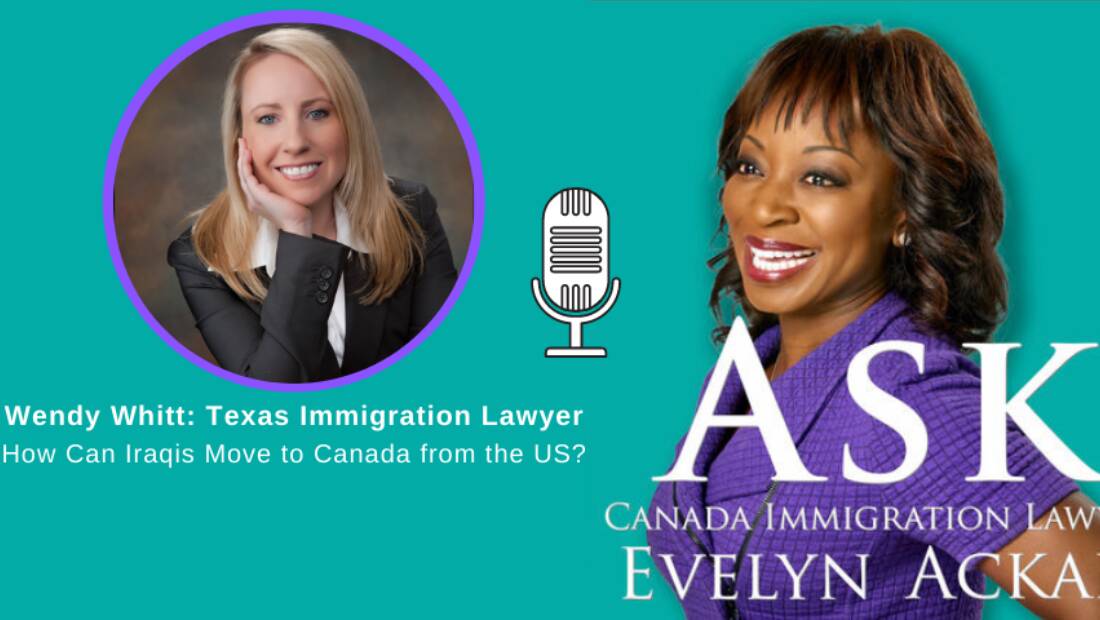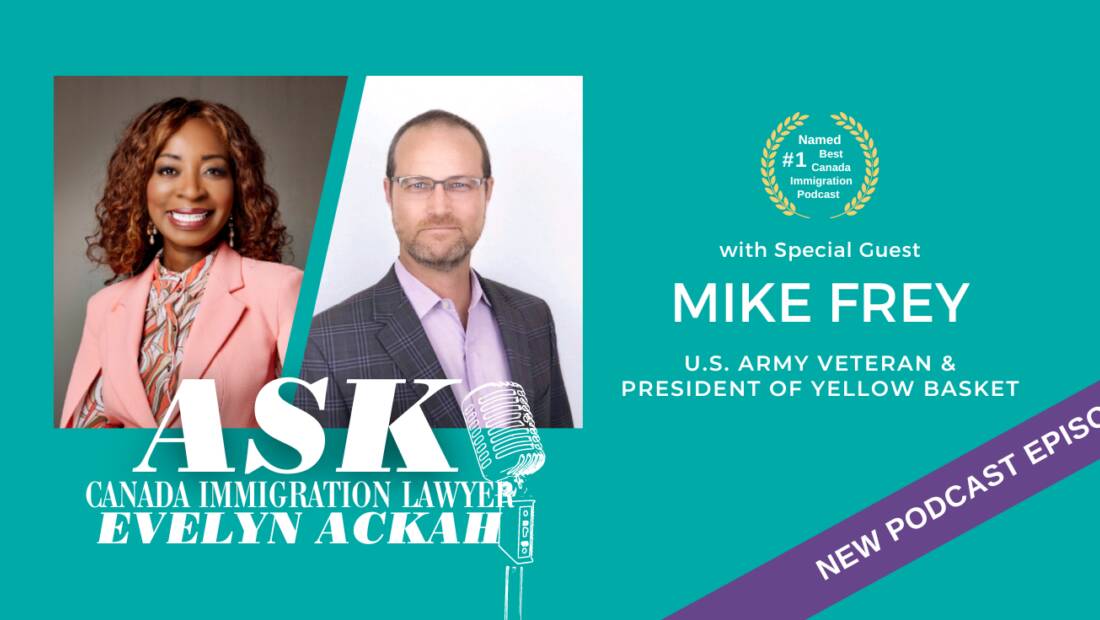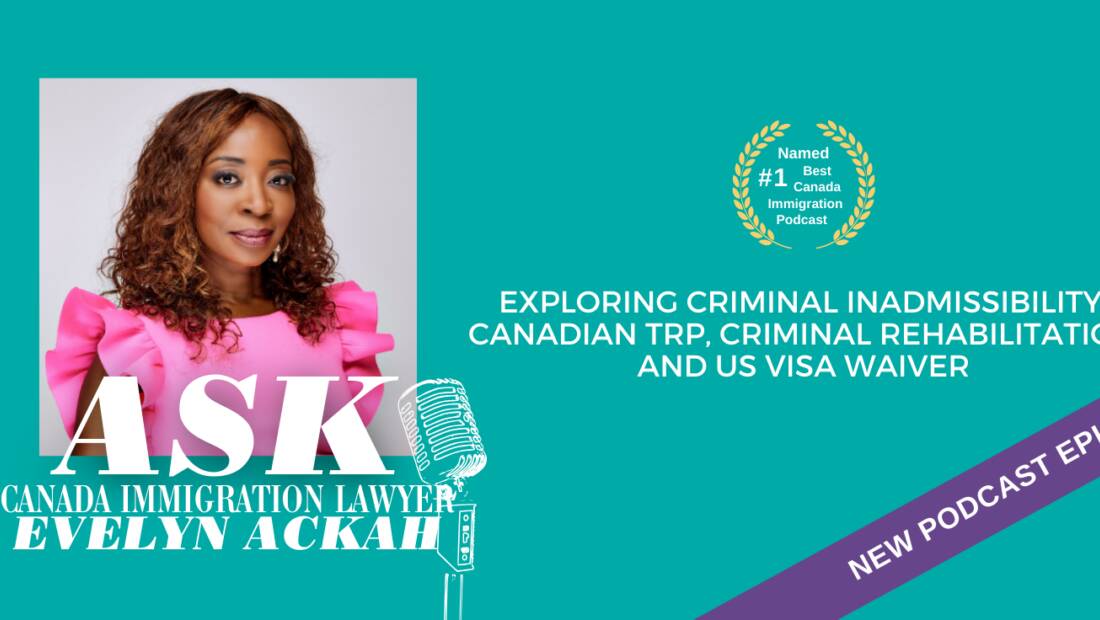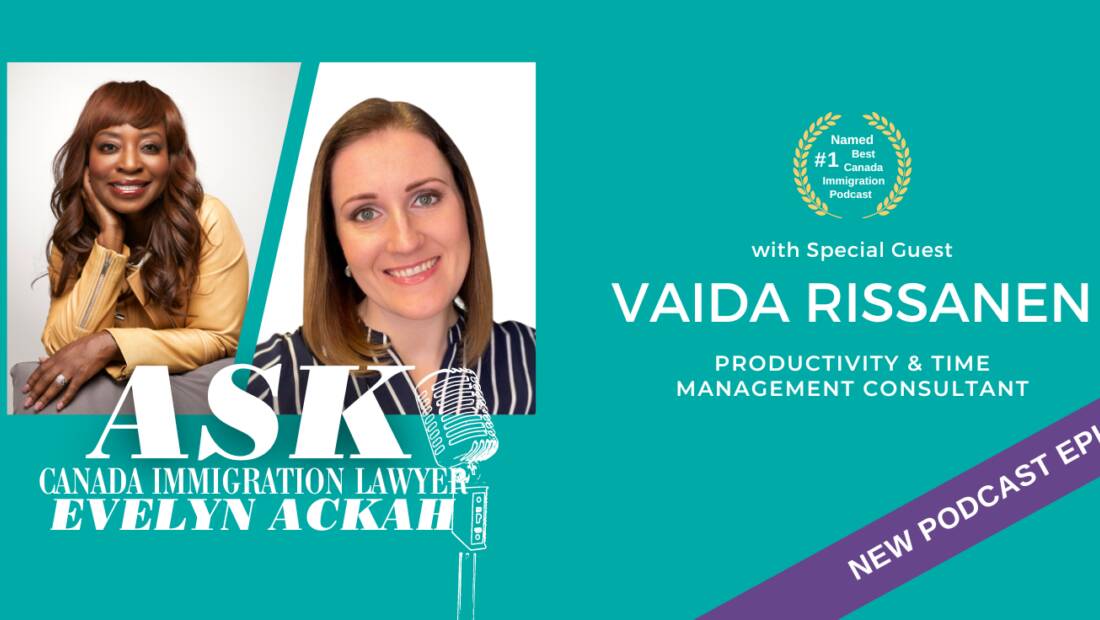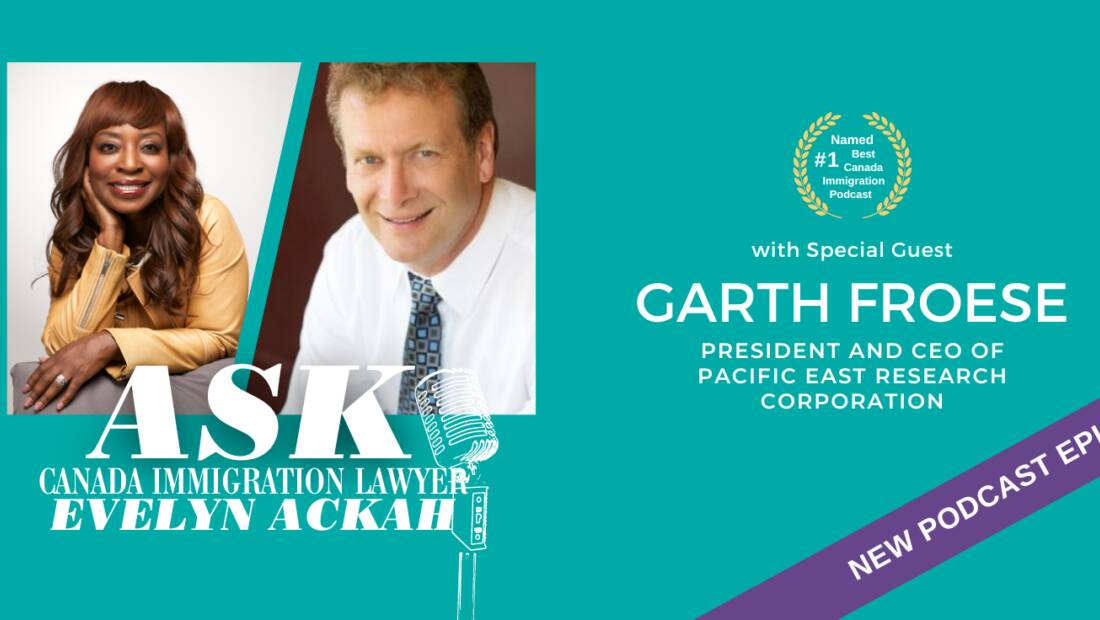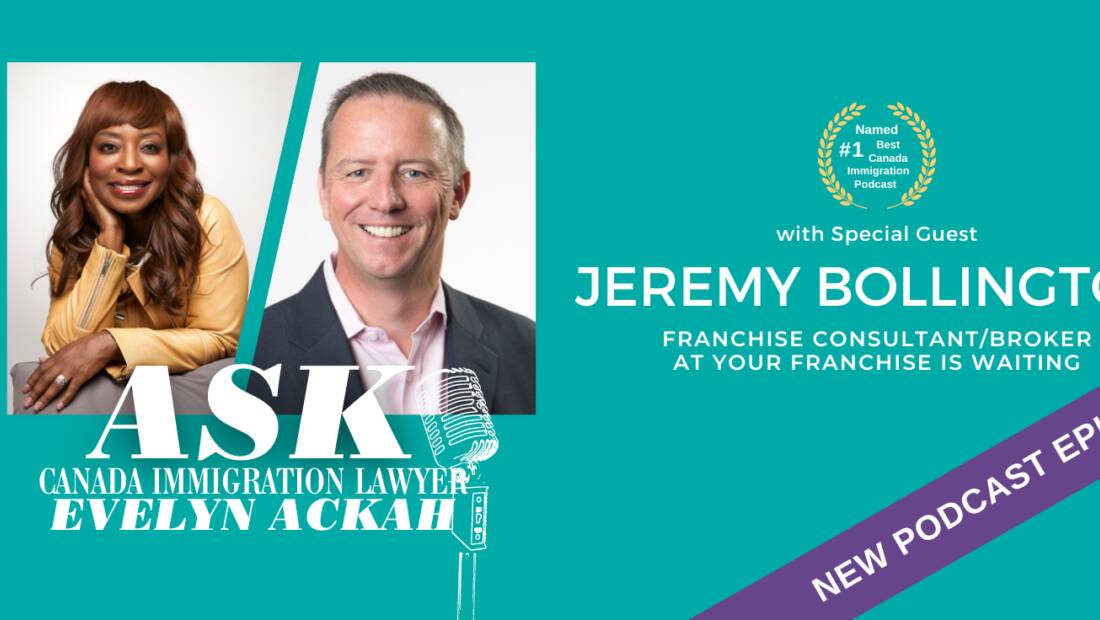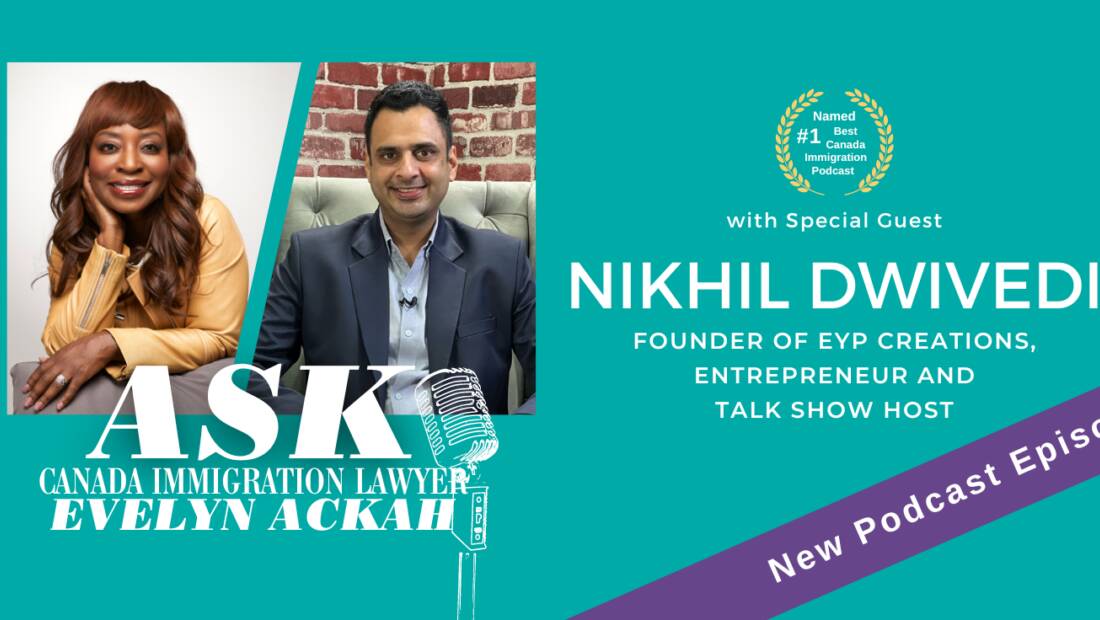Or listen on your favourite podcast app
Texas immigration lawyer Wendy Whitt of Whitt Law PLLC recently asked Canadian immigration lawyer Evelyn Ackah about how her Iraqi clients who are facing long waits for a U.S. asylum can move to Canada. Wendy's law practice focuses on immigration and naturalization law to help people overcome the obstacles to achieve their American Dream.
Wendy talks to many Iraqi nationals who are seeking asylum in the U.S., and they're finding that these cases are taking years, sometimes even decades. And many Iraqis and others have asked her, "Do I have any options at all for moving to Canada?"
Evelyn and Wendy discuss:
- How can Iraqis move to Canada?
- What are the 3 best ways to move to Canada?
- How fast is Canadian immigration compared to U.S. immigration?
- Age requirements for moving to Canada
- How to bring spouses and children to Canada
- Can Iraqis travel back to Iraq after becoming Canadian residents?
- Does a U.S. green card holder need any kind of special visa to visit Canada?

About Evelyn Ackah
Evelyn Ackah is the Founder and Managing Lawyer at Ackah Business Immigration Law. We work with individuals and business owners from all over the world who want to cross borders seamlessly. For more information on immigration to Canada or the United States, Ask Evelyn Ackah at Ackah Business Immigration Law today at (403) 452‑9515 or email Evelyn directly at contact@ackahlaw.com.
Transcript
Wendy Whitt:
Hello. My name is Wendy Whitt. I help people cross borders legally so they can live the American Dream. I'd like to introduce you to my friend and colleague, Evelyn Ackah, of Ackah Business Law. She's a Canadian immigration attorney, and I've asked her to chat with me today about options that Iraqi citizens in the United States may have for going to Canada.
Evelyn Ackah:
Hi, Wendy.
Wendy Whitt:
Evelyn, hi. Thank you so much for joining me today.
Evelyn Ackah:
I'm happy to.
Wendy Whitt:
It is always great to see you.
Evelyn Ackah:
You as well. Thank you.
Wendy Whitt:
Yeah. So, many of our page fans are Iraqi nationals who are seeking asylum in the U.S., and they're finding that these cases are taking years, sometimes even decades. And many people have asked me, "Do I have any options at all for moving to Canada?" What can you tell them about the Canadian immigration process?
Evelyn Ackah:
Oh, I'd love to talk about Canadian immigration. So there are definitely options in Canada, and our process is so different from in the U.S. It's much faster to become a permanent resident. Especially I know that a lot of your Iraqi clients and contacts have lots of education, they speak English well. Those are really the criteria.
Evelyn Ackah:
So, the way that most people would look to come to Canada is either three things. It would be school, even if they're already educated. School is a really direct route to come to Canada, even if they're in their 50s. They might want to do a year or two to upgrade whatever they're doing in order to give them the options for permanent residence.
Evelyn Ackah:
Another option is if they're young, in their 30s, they may qualify for Express Entry, permanent residence, as a Federal Skilled Worker. That's based on age, work experience, education, and English ability, where the government invites them to become permanent residents. That process can take about a year and a half, and they can come to Canada with their families and start a new life.
Evelyn Ackah:
And then the third option, really, Wendy, is work. If they are already professionals and they're working in the U.S. already waiting on green card, if they can find opportunities to transfer to Canada or to find Canadian employers willing to sponsor them, they can come first as workers and then become permanent residents from inside Canada. So we've got some good options for them.
Wendy Whitt:
That's great, Evelyn. I know we've talked about age. Are there any age requirements that someone might need to start knowing, that as they approach a certain age they really need to investigate their options?
Evelyn Ackah:
Yeah, I would say over 40, because the way that Express Entry, the permanent residence from outside Canada process works, you lose points after 40. So I would have no points.
Wendy Whitt:
Oh, wow.
Evelyn Ackah:
You and I are done. And even if you have a Ph.D. and you're over 40, 42, you don't come in that way. You're not going to get those points. But there's no cutoff for school. And if it makes sense based on a person's education, professional background, maybe they want to do an executive MBA. Maybe they want to do a diploma in something that's just 18 months or two years. There's no age restriction for school, only for that one stream of Federal Skilled Worker Express Entry.
Wendy Whitt:
Okay. And Evelyn, most of our Iraq clients and friends are usually married, often have small children. So if they are going to get a Canadian student visa, it would be really important for them to know, can they bring spouses and children to Canada?
Evelyn Ackah:
Absolutely. That's one thing I love about our study permit process, is that you can bring your spouse and your children with you, and the spouse can get an open spousal work permit. It's like an EAD to work wherever they want, and the person that's in school can work part-time 20 hours a week while they're in school. So they can help support themselves while they're in school and be with their needed family members as well.
Wendy Whitt:
Okay, great. And if someone does become a Canadian resident through any of these programs, are they able to travel back to Iraq to visit? Would there be any problems with that?
Evelyn Ackah:
No, there would be no troubles. I'm not sure, again, some of the people you know, if they're coming in under asylum, that might be different, right?
Wendy Whitt:
Right.
Evelyn Ackah:
There might be some limitations. I don't do refugee or asylum work, but if they're just coming in to work and they haven't claimed asylum anywhere, there's no issues for them to travel back home, because it's not seen as a country they're escaping from.
Wendy Whitt:
Okay, great. And I have one last question. So, a lot of my clients who have already gotten their green cards, whether it's for asylum or family programs, a lot of people ask me that they just want to visit Canada. Maybe they have friends there or they want to come as a visitor. So do you know if a green card holder in the U.S. would need any kind of special Canadian visa in order to visit?
Evelyn Ackah:
Yeah, unfortunately. In the old days, if you had a green card, you were treated the same as if you had a U.S. citizenship, and the same with us in Canada; we could just go down. But now if you're a permanent resident, you still need a visa. It's not that hard because they live in the States already under green card, so they'll just be processed through the Canadian Consulate in the U.S. to get a visitor visa and then they can come into Canada, no worries at all. The one area where they can be a green card holder is if they're applying for a work permit at the border. They don't need to be a citizen and they don't need the visa, because they're showing that they're actually applying for a work permit right at the port of entry. It'll let them in based on that. But for visitation, they need the visa.
Wendy Whitt:
Okay. Great, Evelyn. Thank you so much. This information is going to be really helpful. And I'm going to post your website in the comments, so if people want to explore their Canadian immigration options further, they can reach out to you directly.
Evelyn Ackah:
Thank you so much, Wendy, for the opportunity. I really appreciate it. Take care.
Wendy Whitt:
Take care. Goodbye.

